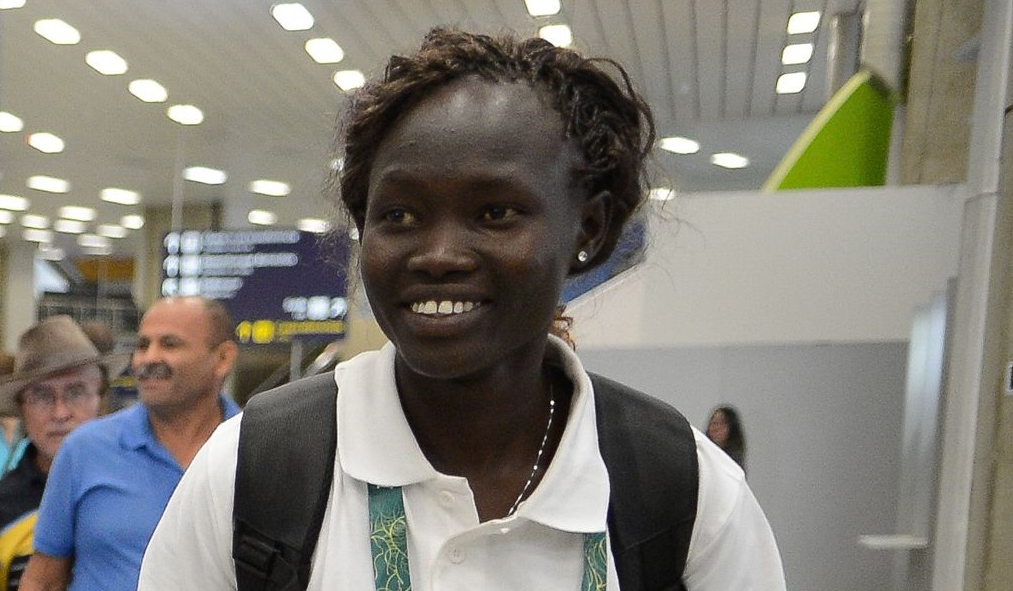According to the United Nations High Commissioner for Refugees, there are approximately 65 million refugees and internally displaced persons worldwide. Among them are world class athletes who dream of competing in the Olympics, but have been displaced from their homes and had their training disrupted. Many are unable to obtain citizenship and compete for their host countries. But this year, 10 athletes will have the opportunity to compete in the Olympics in Rio.
In October 2015, the International Olympic Committee (IOC) announced it would field a team of refugee athletes, hoping to draw attention to the world refugee crisis and encourage countries like the U.S. to provide more humanitarian relief. According to IOC President Thomas Bach, “This will be a symbol of hope for all the refugees in our world, and will make the world better aware of the magnitude of this crisis.”
The first Refugee Olympic Team will consist of 10 athletes from Syria, South Sudan, the Democratic Republic of Congo and Ethiopia. The team has already arrived in Rio and will walk in the opening ceremonies under the Olympic flag to the Olympic anthem.
The athletes include:
- Yusra Mardini who grew up swimming in Damascus, Syria where her home was destroyed in 2012. In August 2015, Daraya and her sister fled Syria – first to Lebanon and Turkey, at which point they were smuggled to Greece. The small boat they shared with 18 other people lost its motor and took on water, forcing Daraya and her sister to jump out and swim for more than three hours and help guide the boat. After finally arriving safely in Greece, they continued by foot or on buses to Macedonia, Serbia, and into Hungary, where they were forced to remain after authorities closed the train station to refugees. Eventually they were able to continue through Austria to Germany, where they lived in a refugee camp in Berlin. She was put in touch with a swimming coach and began training at a swimming club originally built by the Nazis for the 1936 Olympics. Just this March, she was identified by the International Olympic Committee to compete for the newly formed refugee team.
- Rami Anis is a swimmer from Aleppo, Syria. As life got more dangerous in Syria, he fled to Turkey where he thought he’d say a few months. After several years, it became clear he would not return to Syria. While he could train at a swim club in Turkey, he could not compete for that country. He eventually fled, making his way to Belgium where he lives and trains.
- Five long-distance runners from South Sudan were chosen after competing in races in the refugee camp in which they lived in Kenya. Yiech Pur Biel, James Nyang Chiengjiek, Anjelina Nadai Lohalith, Rose Nathike Lokonyen, and Paulo Amotun Lokoro will all be competing in Rio. Rose Nathike said she first ran from soldiers in her home village, and is now running in the Olympics. She says the team is important “because people do undermine refugees as if they are not human beings like them. But now I can see maybe, refugees can also discover their talents and seem like other people.”
- Yonas Kinde is an Ethiopian marathoner who currently drives a taxi in Luxembourg. He’s proud to be running in Rio, but regardless of how well he does, he will not likely be returning to Ethiopia soon. “It’s impossible for me to live there… It’s very dangerous for my life,” Kinde says.
- Popole Misenga and Yolande Mabika are both originally from the Congo and will compete in Judo. “We’re fighting for all the refugees in the world,” according to Misenga. “I’m not sad that I’m not going to carry the flag of my country. I will carry a flag of many countries.”
The athletes’ stories inspire us all. More importantly, they remind us of the human toll of war and conflict.
Photo by Tomaz Silva/Agência Brasil.
FILED UNDER: featured, refugees


